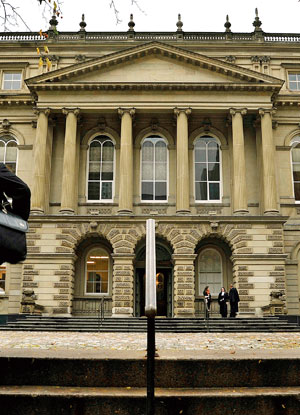The Court of Appeal has reinstated the revocation of a lawyer’s licence in a long-running disciplinary matter that has ping-ponged up through the courts.

The ruling set aside a Divisional Court finding that upheld the reinstating of lawyer John Abbott’s licence.
The Law Society Tribunal Appeal Division had reversed the regulator’s Hearing Division’s decision to revoke Abbott’s licence while simultaneously finding that he had knowingly participated in mortgage fraud.
In the recent decision in
Law Society of Upper Canada v. Abbott, Court of Appeal Justice Peter Lauwers said the result of the Hearing Division’s decision was “unprecedented” and “not justified on the facts of the law.”
Lawyers say the Court of Appeal decision confirms that professional regulatory hearing panels will be afforded significant deference, which means appeal panels and courts will not overturn findings in such matters unless they are unreasonable.
“Whether it’s an appeal tribunal panel or the Divisional Court, they’re only to interfere particularly in questions of mixed fact and law if they first find that a hearing panel’s finding is unreasonable,” says Christopher Wirth, a partner with Keel Cottrelle LLP, who was not involved in the case.
The mortgage transactions in question during the discipline hearings happened over a four-month period in 2006-2007.
A complaint from one of Abbott’s lender clients to the law society spurred an investigation, which culminated in hearings in 2014.
The Hearing Division found Abbott had knowingly assisted in mortgage fraud in seven transactions, which amounted to approximately $625,000 in losses, according to the decision.
When Abbott appealed, the law society’s Appeal Division unanimously agreed that the lawyer had engaged in professional misconduct, but on a split decision it decided to reduce his penalty to a two-year suspension because of what it said was unacceptable delay in the investigation and prosecution.
The appeal division panel decided that the delays constituted exceptional circumstances that could mitigate the penalty.
It found that delays in investigation and prosecution “may be as harmful to public confidence in the legal profession’s ability to regulate itself as Mr. Abbott’s continued right to practise law.”
The law society then appealed that decision to the Divisional Court, which upheld the Appeal Division’s findings.
The Court of Appeal ruled that the Appeal Division should have deferred to the Hearing Division’s decision on penalty and that it failed to consider its reasons as a whole.
The court also found that the Appeal Division failed to “consider whether the Hearing Division’s penalty fell within the range of possible, acceptable and defensible outcomes that were open on the evidence.”
The Court of Appeal found that the Appeal Division would need to find the penalty imposed unreasonable before imposing its own and that there was no precedent for issuing a lower penalty than licence revocation for a lawyer who has been found to have knowingly participated in mortgage fraud.
Lauwers said the Appeal Division erred by not deferring to the Hearing Division’s findings.
“The findings of the Appeal Division that the Hearing Division made errors of law reflect its strong resolve to impose a lesser penalty than revocation on Mr. Abbott in order to send a message to the Law Society that delay is unacceptable, as the dissent pointed out,” he wrote in the decision.
He found that in doing so, the Appeal Division “exceeded its responsibility as an adjudicative body” and “actively sought to subvert” the Hearing Division’s reasoning.
The Court of Appeal found the Divisional Court should have shown deference to the Hearing Division, as it was an expert panel that heard live evidence and the revocation penalty was a question of mixed fact and law.
The only way an appeals panel or the Divisional Court could deter from the original panel was if they found its decision was unreasonable.
Wirth says that if the Divisional Court’s decision was upheld it would have meant that appeals tribunals or the Divisional Court would be more likely to interfere with hearing panel decisions.
He says lawyers defending professionals in such disciplinary matters should take note of the decision.
“Your best chance for a successful outcome will be before the hearings panel because appeals are going to be more difficult,” he says.
Robert Centa, managing partner at Paliare Roland Rosenberg Rothstein LLP, who was not involved in the case, says the decision is a reminder that courts will protect the public interest very aggressively.
“Ultimately, I don’t think delay, even the type of delay in that case, really serves to reduce a penalty of revocation where the public interest is clearly affected unless it rises to the level justifying a stay of proceedings,” he says.
In addition to reinstating the revocation of Abbott’s licence, the Court of appeal awarded $15,000 in costs against him.
James Morton, the lawyer representing Abbott in the proceedings, says Abott is disappointed with the decision and is considering his options at the moment.
“It would appear that the decision permits rather lengthy delays by the law society to have no effect on the ultimate penalty imposed,” he says.
“And that is an issue that may be subject to further exploration elsewhere.”
A spokeswoman for the law society refused to comment on the decision.

 The ruling set aside a Divisional Court finding that upheld the reinstating of lawyer John Abbott’s licence.
The ruling set aside a Divisional Court finding that upheld the reinstating of lawyer John Abbott’s licence.